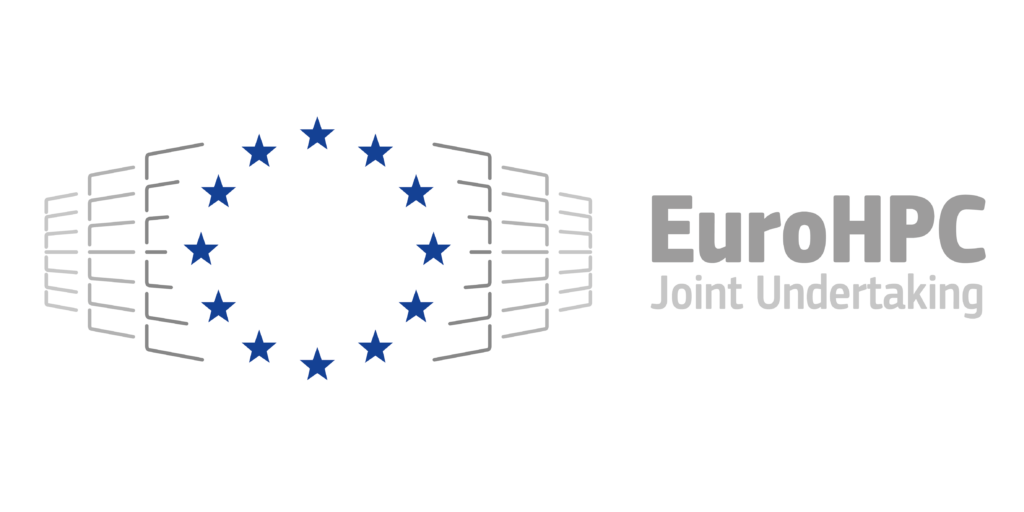At the IEEE BEE Week, EPI’s Sergio Sponara from UNIPI held a distinguished lecture.
Fabrizio Magugliani (E4 Computer Engineering) presented at the event “ IBM AI Bologna – Anomaly detection in Finance & AutoAI” focused on the interesting field of AI implementations for detecting anomalies in data series applied mainly to the financial market. EPI was mentioned as an opportunity to perform the compute-intensive phase of the detection of the anomalies.
In November 2019, the European Commission organized a workshop to analyze the future of Open Source Software and hardware. The workshop brought stakeholders together to discuss current challenges, opportunities, R&I, economic and policy-making issues. EPI’s Jesus Labarta from Barcelona Supercomputing Centre participated in the workshop on a Panel on Open Source opportunities.
At the European Cyber Week, held in Rennes, France, EPI’s Dominique Bolignano from Prove & Run gave a presentation about embedded security in EPI.
EPI team attended the Supercomputing conference in Denver, with its own exhibition booth and four more shared partners’ booths exhibiting EPI materials. In addition to that, EPI representatives held several presentations and invited talks:
At the Arm User Group meeting, Yingchih Yang from Atos presented the EPI Design Updated, while Dirk Pleiter from Julich presented “Linear algebra on Arm-based platforms: From Neon to SVE”. EPI Chairman of the Board, Jean-Marc Denis attended the ETP4HPC BoF with an invited talk, and also the ASC HPC Connection Workshop with a talk titled “Recent Developments on EPI Program”.
Fabrizio Magugliani from E4 attended IDCS2019: the 12th International Conference on Internet and Distributed Computing Systems, delivering the E4 presentation. The speakers listed in the rich agenda detailed how the rapidly evolving technology for Distributed Computing Systems enables using more computation and ‘intelligence’ at the Edge, and how to maximize the effectiveness of different architectures and components. While these components are ideal for analyzing data at the Edge, more elaborate analysis demands the use of more powerful systems. Having the same Instruction set at the Edge (running Arm devices) as well as in the centralized computing facility is definitely a value, making the EPI processor ideal for seamless integration of the data streams with the EPI-powered centralized facility.
Jean-Marc Denis, EPI Chair of the Board, attended the 75th HPC User forum where he presented the road so far, the latest developments and the Initiative’s future steps.
Jean-Marc Denis, EPI Chair of the Board, attended the 74th HPC User forum where he presented the road so far, the latest developments and the Initiative future steps.
Fabrizio Magugliani from E4 Computer Engineering presented at the workshop “Edge computing: Quando il Cloud è troppo lontano”, which confirmed the need for integrating the different streams of data (coming from IoT, the Edge, Industry 4.0 and similar sources) in a consistent view, including the pre-processing of data at the Edge and a HPC-powered analysis in a centralized facility, applying AI and HPDA techniques to the streams and then storing and capitalizing on the ‘knowledge’ extracted from the data. He introduced the roadmap and goals of the EPI and highlighted that the roadmap is fully consistent with the computational need of such a chain of processing.
At the 2nd RISC-V Meetings, organized by IRT Nanoelec and CEA and The Scientific Day of IRT SE & GDR SOC2: RISC-V for critical embedded systems, organized by IRT St-Exupéry and GDR SOC2, EPI partners held two presentations.
The first one made by Romain Dolbeau, who gave a talk titled “European Processor Initiative: challenges & opportunities for RISC-V accelerators in an HPC platform”, is available upon request due to file size. The second, done by Denis Dutoit, is available for download here. Ater an introduction on High Performance Computing new challenges and associated technology/architecture evolution, the presentation highlighted the EPI position statement on generic computing, accelerator with RISC-V and design methodology. The presentation concluded with an explanation of EPI’s roadmap towards a wide range of applications from Exascale computing to embedded HPC.

